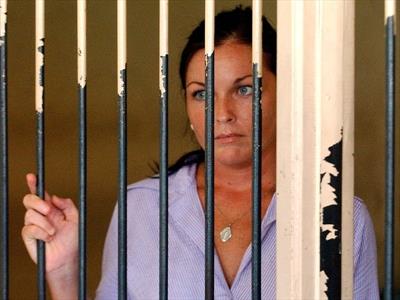CONVICTED drug smuggler Schapelle Corby is a step closer to being released from a Balinese prison today after reports that Indonesian officials have inspected her sister’s home in order to determine whether it would provide a suitable home for Ms Corby while she is on parole.
News Limited have reported that three Indonesian officials visited Ms Corby at her cell in Bali’s notorious Kerobokan Prison yesterday, including a government official that would serve as her parole officer if and when Ms Corby is released. The three officials then visited the Kuta home of Ms Corby’s sister Mercedes, in a strong indication that preparations are being made for the controversial prisoner’s release.
Unconfirmed reports have surfaced on Twitter suggesting that Ms Corby will be released around 30 October, around nine years after she was convicted of smuggling four kilograms of marijuana into Indonesia. Ms Corby was sentenced to 20 years for the crime in 2004, however her sentence has been reduced significantly throughout her time in prison.
Ms Corby would be the first foreigner to be paroled in Indonesia, and would be required to live at the Balinese home shared by her sister, brother-in-law, their two children and extended family. Ms Corby’s sister and her family would be required to take responsibility for Schapelle while she is on parole, promising financial support and a commitment to her moral education.
Ms Corby’s application was made possible by amendments to Indonesian legislation earlier this year which clarified that foreigners on parole in Indonesia did not need a permit to live in the country. The existing legislation stated that foreigners serving “prison time” in Indonesia would not need a permit, with the alterations to the legislation clarifying that parolees were still technically covered under this designation.
It is understood that Ms Corby has yet to apply for parole, however it is expected that her legal team will go through the necessary processes over the next several weeks. Her parole application also faces challenges due to a stipulation in Indonesian law requiring applicants to express remorse for the actions that led to their imprisonment.
Ms Corby has consistently denied involvement in drug smuggling, refusing to express remorse at her original trial despite suggestions that such a statement would have resulted in a reduced sentence. Ms Corby’s claims attracted significant media attention in Australia, with popular suggestion that she had been the unwitting victim of a drug trafficking scheme involving airport baggage handlers.












